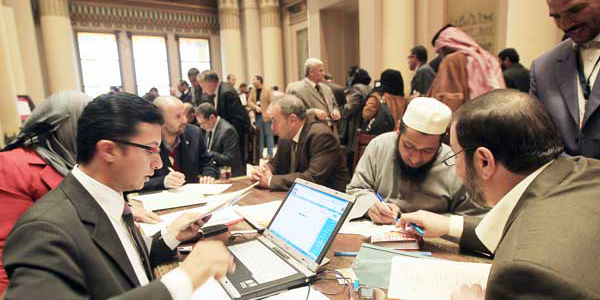
Egypt’s newly elected 508-member People’s Assembly convened for its first session on January 23. New parliamentarians took their constitutional oaths berore voting to elect a new parliamentary speaker (Brotherhood member Saad al-Katatny, winning with 399 votes) and two deputies (voting is still underway).
Official results for party list-races were released on January 21, confirming the Islamist parties’ sweeping victory: The Muslim Brotherhood’s Freedom and Justice Party (FJP) won 127 seats (38 percent) and the Salafi Al-Nour Party won 96 (29 percent) of the 332 seats allocated for party lists.
Final results overall, including individual candidates, showed that Islamist parties won around 70 percent of the seats in parliament:
- The Brotherhood-led Democratic Alliance won 47 percent, or 235 of the 498 elected seats parliament
- The Salafi Nour Party came in second with 25 percent, or 125 seats
- The liberal Egyptian Bloc coalition won 9 percent of the seats in parliament
- The Wafd Party secured around 9 percent of the seta
- In addition to the 498 seats contested in the elections, the SCAF appointed 10 representatives, including two women and several Coptic Christians.
Muslim Brotherhood member Saad al-Katatny, elected speaker of parliament on January 23, is the first Brotherhood member to hold such a high-ranking position since the movement’s founding in 1928. He had been expected to win at least 346 votes (the sum total of 213 FJP deputies and an additional 22 members of the Democratic Alliance plus the votes of 121 members of the Salafi Nour Party. Al-Katany resigned as secretary general of the FJP shortly after his nomination for the post of speaker. In the video below (Arabic), deputies argue over the four candidates — al-Katatny, Wasat Party’s Essam Sultan, the Egyptian Bloc’s Magdy Sabry, and the independent Yousef al-Badry — nominated for speaker of parliament.
Video: al-Masry al-Youm
Image: 1-parliament.jpg
